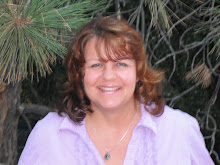| Photo from Inspire Magazine |
I want to grow into a fuller version of lamenting.
In his book Soong-Chang Rah refers to some research done by Glenn Pemberton. Rah notes that while lament constitutes 40% of the Psalms, less than 20% of any of the church hymnals contain songs of lament, and even less of the contemporary worship songs popular in churches across America today. Rah goes on to explain how most of the White American churches are "concerned with questions of proper management and joyous celebration". Rah quotes Walter Breggemann and flat out says "The well-off do not expect their faith to begin in a cry, but rather with a song. They do not expect or need intrusion, but they rejoice in stability [and the] durability of a world and social order that have been beneficial to them".
Rah goes on to explain that a theology that only consists of celebration and doesn't include suffering is not complete. He speaks of how lament and praise must go hand in hand.
Since I was a young teen I've always felt called to work to help people. My jobs have primarily had me work with people who are developmentally disabled or mentally ill. I'm consistently drawn to people on the fringes. As far back as I can remember I've cried whenever I see people in pain, see a movie where people are ill treated, or read about people being treated bad. I actually have to turn away when there's violence in movies and someone's getting hurt - I can't watch it. I can't handle boxing or any kind of contact sport where someone's getting hurt right in front of me. I can't drive by an ambulance without beginning to pray for the people who are going to be served by it. Sometimes I've been a bit embarrassed about the crying. At one point I even wondered if I had some kind of repressed memories that caused me to almost take on the emotions of those being hurt. I sometimes feel like I am kind of a downer in a world of have-it-togethers and maybe I'm missing out on something because of it. Recently I've come to realize that this has absolutely nothing to do with me doing anything - it's just the way I'm wired.
Because of how I'm wired, in some ways lamenting is a bit natural for me.
However, I seek to embrace a fuller version of lamenting. I appreciate Hill's word of explanation that when we lament we "posture ourselves before God to wail, cry and mourn. To lament is to acknowledge the pain that we aren't home and this world is too often marked by evil and injustice. To lament is to ask God the haunting questions 'Where are you? What are you doing? How long must we wait?' " "a lament is truly asking, seeking, and knocking to understand the heart of God. A lament involves the energy to search, not shut down the quest for truth. It is the passion to ask, rather than rant and rave with already reached conclusions. A lament uses the language of pain, anger, and confusion and moves toward God."
As I ponder this I'm struck with the thought that lamenting should lead me to a deep level realization of my insufficiency and cause me to cling to God. Then God can provide the answers about what to do. The older I get the more I realize that some things just can't be fixed. This doesn't mean that I give up. It means that I will continue to seek to do what God wants me to - and sometimes He supernaturally does stuff - but sometimes He doesn't and things still remain broken (it's the old Humpty Dumpty thing). I choose to live my life grateful for when God does bless and change things and mindful of the fact that He's God and I'm not when He doesn't.








No comments:
Post a Comment